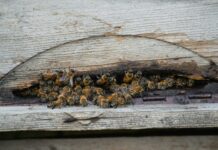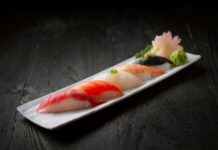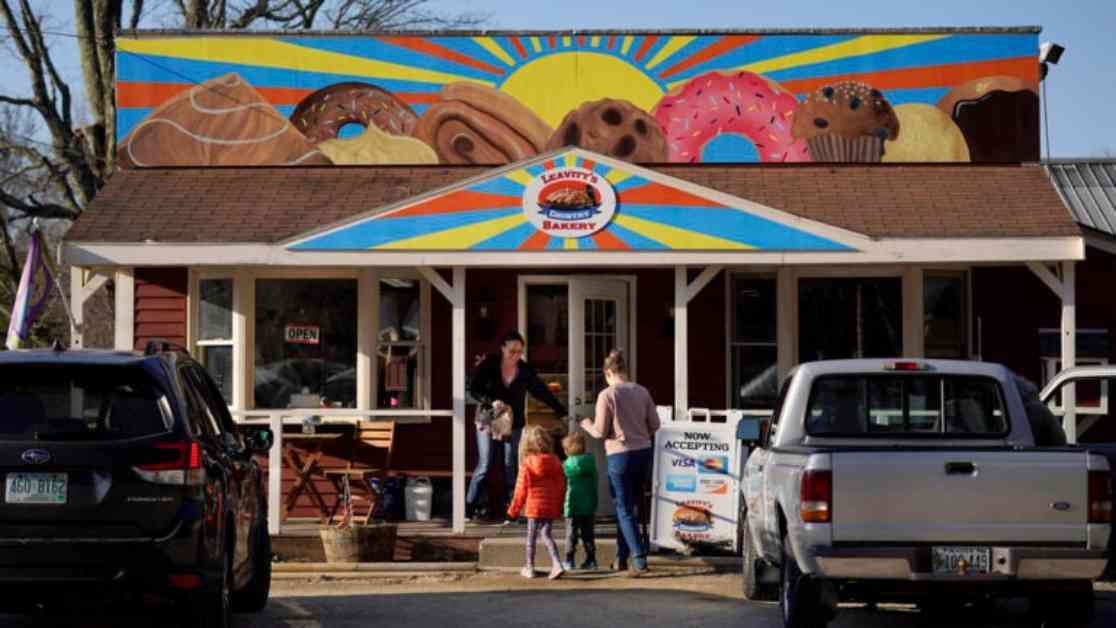Local Bakery Faces Legal Battle Over Pastry Painting
In the cozy town of Conway, New Hampshire, tucked away amidst the White Mountains, a quaint bakery stood adorned with a vibrant mural of towering pastries. Leavitt’s Country Bakery, a beloved local establishment, had proudly displayed a painting crafted by high school students, depicting a whimsical scene of sunbeams caressing a mountain range made of sprinkle-covered doughnuts and other delectable treats.
However, what began as a celebration of artistry quickly spiraled into a legal tangle when a zoning code officer deemed the picturesque mural a sign, triggering a clash between artistic expression and municipal regulations. Sean Young, the owner of Leavitt’s Country Bakery, found himself at odds with the town of Conway, asserting that the painting was a work of art, not a sign intended for commercial purposes.
As Young took his stand in court, his frustration was palpable. He recounted his initial excitement at showcasing the students’ creativity, only to be confronted with demands for alteration or removal of the painting. “I was artistically offended for the students,” Young remarked, reflecting on his battle against what he perceived as an infringement on his First Amendment rights.
The crux of the matter lay in the town’s interpretation of the painting as advertising rather than art. According to the zoning board, the mural’s depiction of baked goods, although visually striking, was deemed promotional in nature due to its association with the bakery’s offerings. Moreover, the painting’s size, spanning 90 square feet, far exceeded the local sign code’s limits, raising concerns about visual clutter and safety hazards.
Jeremy Gibbs, the zoning officer who issued the citation, defended the town’s stance, emphasizing the need for regulatory oversight to preserve Conway’s natural beauty and prevent haphazard sign placements. In a region renowned for its scenic allure and tourist attractions, the delicate balance between commercial interests and environmental aesthetics loomed large in the courtroom deliberations.
Amidst the legal proceedings, U.S. District Judge Joseph Laplante injected moments of levity, subtly diffusing the tension with witty remarks. “It’s shocking that no one brought doughnuts to this trial,” Laplante quipped, underscoring the whimsical nature of the case. Delving further into the details, Laplante engaged Young in a playful exchange, prompting him to narrate the nuances of each pastry depicted in the mural, from scones to raspberry cookies masquerading as cupcake tops.
As the courtroom drama unfolded, the fate of Leavitt’s Country Bakery’s pastry painting hung in the balance, awaiting a judicial verdict on the contentious clash between artistic expression and municipal regulations. The clash between creativity and conformity had cast a spotlight on a small-town bakery’s battle for the right to showcase student artistry amidst the scenic splendor of the White Mountains.
In the heart of an idyllic New Hampshire town, a legal battle over a pastry painting had sparked a spirited debate, pitting the town’s regulatory framework against a bakery owner’s fervent defense of artistic freedom. Amidst the backdrop of lush mountains and quaint storefronts, the clash between creativity and conformity played out in a courtroom drama that captured the essence of a community’s struggle to reconcile artistic expression with civic mandates.






